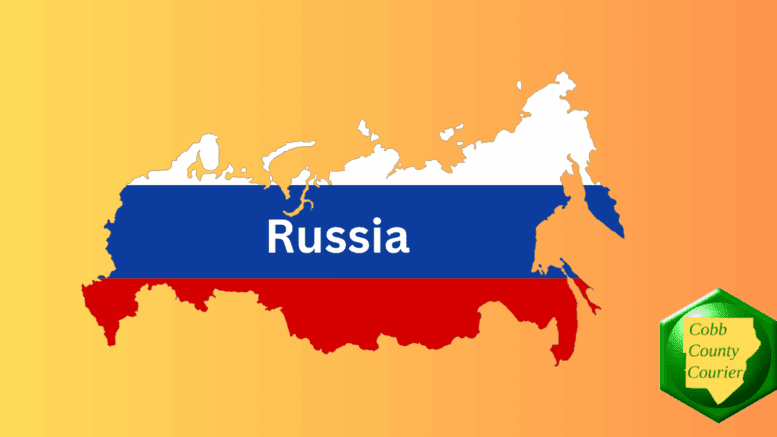By John A. Tures, Professor of Political Science, LaGrange College
As the battle lines on the Russia-Ukraine front come to a standstill, the propaganda arena for this conflict is escalating. Russia and its allies are harping on Ukraine not holding a scheduled election, and implying that Ukrainian President Volodymyr Zelensky is some kind of dictator or thug.
But their pitch claiming that Ukraine is some sort of authoritarian state is just not resonating with free states; the world’s democracies are almost exclusively siding with Ukraine, not Russia.
According to Asya Robins of the BBC on February 18, 2025 “Today saw a heated back and forth between US President Donald Trump and Ukrainian President Volodymyr Zelensky. Trump escalated his comments a few hours ago by calling Zelensky a ‘dictator’ – he had previously claimed that the Ukrainian leader was down to 4% approval rating among the Ukrainian public – a claim that is not true, as our correspondent Sarah Rainsford explains.”
But the British Prime Minister backed Zelensky, defending the democratic credentials of Ukraine as Joshua Nevett and Eleanor Montague of the BBC report. “Prime Minister Sir Keir Starmer has backed Volodymyr Zelensky as a “democratically elected leader” after Donald Trump described the Ukrainian president as a “dictator”. Sir Keir called Zelensky on Wednesday evening and told him it was “perfectly reasonable” for Ukraine to “suspend elections during wartime as the UK did during World War Two”, Downing Street said. The US president had earlier criticised Zelensky, saying he had done a “terrible job” and claiming “he refuses to have elections” in Ukraine. Zelensky’s five-year term was due to end in May 2024, but elections have been suspended since martial law was declared after Russia’s invasion.”
As The Guardian reports “Other administration officials including Tulsi Gabbard, the US director of national intelligence, have wrongly claimed Kyiv has cancelled elections…On Thursday, Trump’s ally Elon Musk tweeted: ‘Ukraine needs to hold an election. Zelensky would lose by a landslide.’ But Zelenskyy remains the most popular politician in Ukraine. Trump’s recent attacks on him have boosted his ratings, which are at 44 % according to the British pollster Survation this week. Poroshenko, an oligarch who was elected in 2014, receives 10% support, with Tymoshenko on 5.4%. The second most popular potential candidate is Valerii Zaluzhnyi, Ukraine’s ambassador to the UK, who trails Zelenskyy by more than 20 points. A former head of Ukraine’s armed forces, he accused Trump on Thursday of sabotaging western unity.”
But how do other democracies feel? Earlier this semester, my students looked at a United Nations General Assembly vote opposing Russia’s invasion of Ukraine. We found that more than 70 percent of the world’s free countries supported Ukraine, as measured by Freedom House. Only four free countries backed Russia: the U.S. under Trump, Israel, the Marshall Islands, and Palau. Overall, the resolution supporting Ukraine passed 93-20.
In this article, I focused on a second vote, UN General Assembly Resolution (ES-11/8) known as “The Path to Peace,” only eight countries backed Russia: Russia, Belarus, North Korea, Nicaragua, Sudan, Niger, Mali, and Burkina Faso, which don’t necessarily have strong Freedom House measures of civil liberties and political rights. The same 93 who opposed Russia then voted for peace in the conflict, a measure that wouldn’t be liked by the clear aggressor. The free countries either abstained (U.S. and Israel) or joined with the free countries.
Despite what the new U.S. leaders claim about Ukraine’s President, the world’s democracies don’t share that assessment. And they back it up with United Nations votes, not just with words.
John A. Tures is a professor of political science at LaGrange College in LaGrange, Georgia. His views are his own. He can be reached at jtures@lagrange.edu. His “X” account is JohnTures2.
